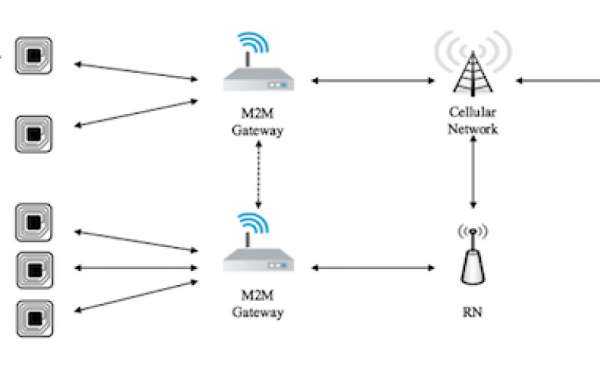Introduction to Cellular M2M
Cellular Machine-to-Machine (M2M) technology is revolutionizing how devices interact and communicate. It enables machines, sensors, and systems to exchange data over cellular networks without human intervention. This seamless communication enhances operational efficiency, supports real-time monitoring, and fosters innovation across industries. By leveraging established cellular infrastructure, M2M ensures reliable and widespread connectivity, making it ideal for applications ranging from smart cities to healthcare.
How Cellular M2M Works
Cellular M2M operates through a combination of devices equipped with SIM cards, modems, and sensors connected to a cellular network. These devices collect data and transmit it to centralized servers or cloud platforms. The data can then be analyzed for actionable insights or used to trigger automated responses. This end-to-end communication process supports everything from fleet management to remote equipment monitoring, reducing manual oversight and operational costs.
Key Benefits of Cellular M2M
One of the most significant advantages of Cellular M2M technology is its ability to provide continuous, real-time data transfer. This allows businesses to monitor equipment performance, optimize logistics, and improve decision-making. Additionally, cellular networks offer extensive coverage, ensuring connectivity even in remote locations. The scalability of M2M systems also allows companies to expand operations effortlessly, integrating new devices without overhauling existing infrastructure.
Applications Across Industries
Cellular M2M technology is driving innovation across diverse sectors. In transportation and logistics, it supports real-time vehicle tracking, route optimization, and fuel efficiency monitoring. The healthcare industry benefits from remote patient monitoring and smart medical devices, enhancing patient care and reducing hospital visits. In smart cities, M2M powers intelligent traffic management, energy-efficient lighting, and connected utilities, promoting sustainability. Manufacturing companies rely on M2M to enable predictive maintenance and streamline production processes, minimizing downtime and improving output.
Security and Reliability
With the growing reliance on M2M technology, ensuring data security and network reliability is crucial. Cellular M2M solutions often incorporate advanced encryption protocols and secure authentication methods to protect sensitive data from cyber threats. Additionally, cellular networks are designed to provide consistent uptime, ensuring uninterrupted communication. As 5G networks continue to expand, M2M systems will benefit from faster data speeds, lower latency, and enhanced reliability.
The Future of Cellular M2M
The future of Cellular M2M is poised for significant growth and innovation. The rise of 5G, along with advancements in IoT and artificial intelligence, will drive the development of smarter, more efficient M2M solutions. Emerging technologies such as edge computing will further enhance M2M capabilities by enabling faster data processing closer to the source. This will support real-time applications like autonomous vehicles, industrial automation, and smart grids, reshaping how businesses operate and interact with their environments.
Read More - https://www.marketresearchfuture.com/reports/cellular-m2m-market-10450
Conclusion
Cellular M2M technology is a game-changer in the realm of connected devices and automation. It empowers industries with real-time data, improved efficiency, and innovative applications. As technology continues to evolve, Cellular M2M will remain a cornerstone of digital transformation, driving smarter, more connected ecosystems. Embracing this technology is essential for businesses looking to stay competitive and agile in an increasingly data-driven world.








